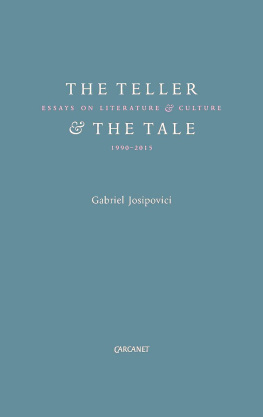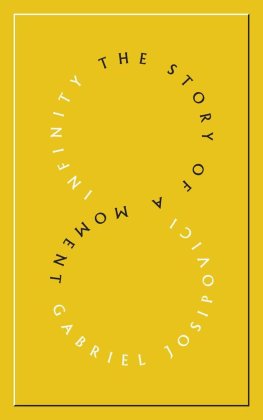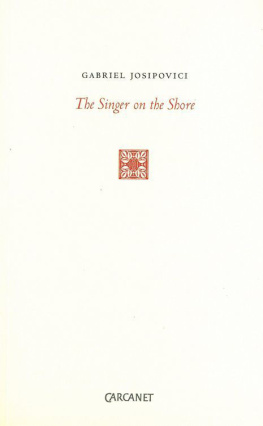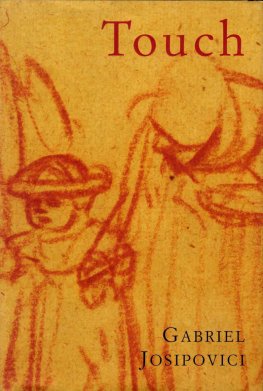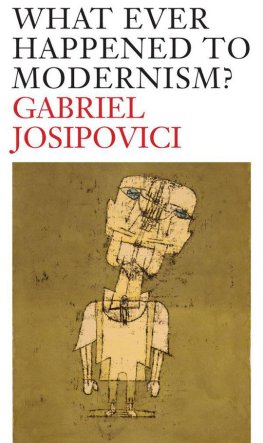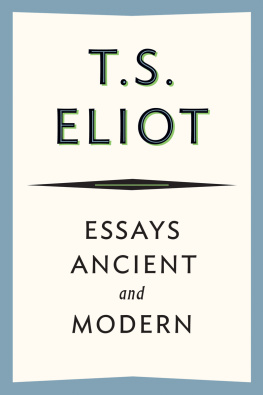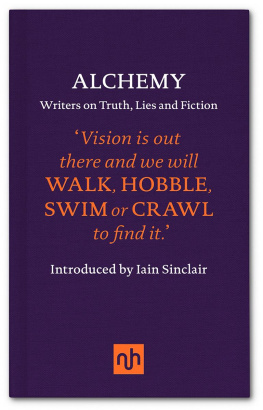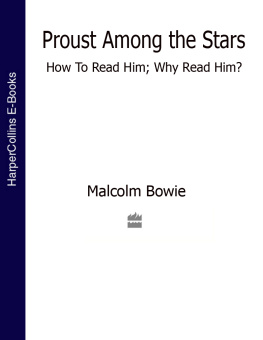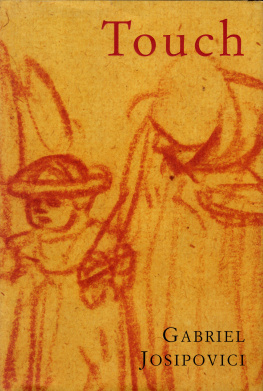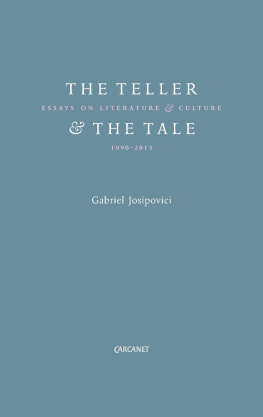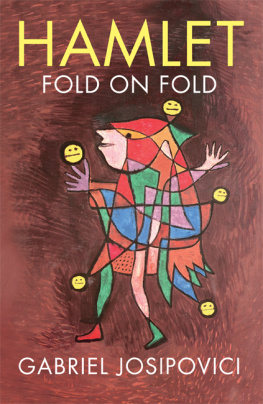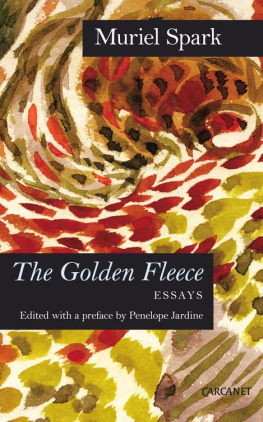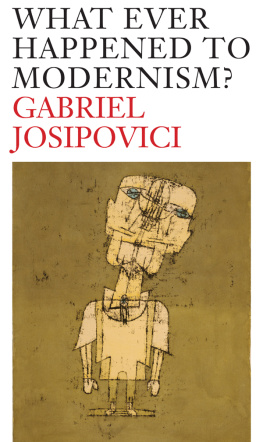I TS ONLY NOW that I have finished putting together this selection of essays and reviews written over the past quarter of a century that I see what a personal volume it is.
Three strands run through it: Jewish culture and experience; modernism and its discontents; and my own writing. Naturally they shade into one another. Thus the invitation to review a book on the Cairo Geniza allowed me to revisit my childhood in Egypt, while the review of a book on a family of Holocaust victims and survivors helped me understand how different is my own experience as a Jew with roots in the Middle East from that of the bulk of English and American Jews, who came from the Ashkenazi strongholds of North-Eastern Europe; meditation on the lives and writings of Kafka, Eliot, and Pasternak led straight to the heart of modernism, but questions of Judaism and anti-Semitism could not be avoided there either. Some of the later essays deal with problems I faced in writing various novels and short stories, and here I hope reprinting them will not be seen as mere self-indulgence; certainly in my own experience artists writing or talking about their work has been both intriguing and illuminating, even when I have not read or seen or heard that work or perhaps do not warm to it greatly.
I conclude with a response to an invitation to write about place, which allowed me to ponder what it means to me to live where I do, not far upstream from where Virginia Woolf drowned herself.
M Y DEAR DEPARTED FRIEND Gmini Salgdo entitled his inaugural lecture as Professor of English at the University of Exeter Shakespeare and I, because, he said, that was his one chance of finding his name yoked to that of the writer he admired above all others. A similar impulse has led to my choice of title for this essay, but there are also deeper reasons (as, indeed, there were for Gmini). Prousts la recherche du temps perdu, like Dantes Divina Commedia, leads you in a spiral to the point where a door opens and you are invited and find yourself able to cross a threshold into a new life. You are able to do so because you have been trained for this purpose, much as a gymnast is trained, in the course of the three thousand pages that separate beginning and end. The book, like Dantes poem, is as much about us, the readers, as it is about Marcel. Proust was clear about this and often alluded to it in the course of the novel, and he was also clear, from the first, that the role of all art was to lead us forward to a place or a form of life we are all in search of but cannot by ourselves attain. When, for example, Swann first hears the Vinteuil sonata, it takes hold of him in a quite literal way: Dun rhythme lent elle le dirigeait ici dabord, puis l, puis ailleur, vers un bonheur noble, inintelligible et prcis. [With a slow and rhythmical movement it led him first this way, then that, towards a state of happiness that was noble, unintelligible, and yet precise.]
If this is the case then a response to the novel that is personal and biographical need not be merely anecdotal or self-preening but could, on the contrary, lead one into the very heart of Proust. For just as Marcels story is seen (in the first instance by the relationship Proust establishes between Marcel and Swann) to be not merely the story of one person but of all human beings, so my personal response may turn out to be just one instance of a universal one. That, at any rate, is my hope for what follows.
I first read la recherche at seventeen, in the year between school and university. In the mornings I was trying to write a novel and in the evenings I was reading my way through the great literature of the world, all borrowed from the wonderful Putney and Wandsworth public libraries. I read Dostoevsky and Tolstoy, Dickens and George Eliot, Yeats and Rilke and then I read Proust. I felt at once that Proust was true in ways the others simply were not; they might be profound, tragic, funny, moving and many other things, but Prousts book had this peculiar quality of touching on my life at every turn, of actually being about me. Why did I feel this? What was it in the book that made me feel this?
At one level it was a plethora of tiny details, such as the pillow that appears in the second paragraph of the novel: Jappuyais tendrement mes joues contre les belles joues de loreiller qui, pleines et fraches, sont comme les joues de ntre enfance. [I would lay my cheeks gently against the comfortable cheeks of my pillow, as plump and fresh as the cheeks of childhood.] This is the kind of observation that tends to pass below the radar of most writers, but it catches in one short sentence the way a freshly ironed pillow-case, as one lays ones head to rest on it, brings flooding into ones body the sense of the protected nature of childhood, how in that blessed period we slept so well because we had no responsibilities, our lives taken care of by our loving parents. It doesnt tell us this but conveys it with that wonderful shorthand which is the privilege of great art comme les joues de ntre enfance. When I first read it I did not pause to think all this, and I did not see how it related to the theme of those opening pages and of the novel as a whole it was just felt in the blood, and felt along the heart, as Wordsworth, who knew a thing or two himself about memory and the body, put it in Tintern Abbey.
Then there were the details of social behaviour, such as we get in the third paragraph of Un amour de Swann:
Les Verdurin ninvitaient pas a dner: on avait chez eux son couvert mis. Pour la soire, il ny avait pas de programme. Le jeune pianiste jouait, mais seulement si a lui chantait, car on ne forait personne et comme disait M.Verdurin, Tout pour les amis, vivent les camarades! Si le pianiste voulait jouer la chevauche de La Walkyrie ou le prlude de Tristan, Mme Verdurin protestait, non que cette musique lui dplt, mais au contraire parce quelle lui causait trop dimpression. Alors vous tenez ce que jaie ma migraine? Vous savez bien que cest la mme chose chaque fois quil joue a. Je sais ce qui mattend! Demain quand je voudrai me lever, bonsoir, plus personne! Sil ne jouait pas, on causait, et lun des amis, le plus souvent leur peintre favori dalors, lchait, comme disait M.Verdurin, une grosse faribole qui faisait sesclaffer tout le monde, Mme Verdurin surtout, a qui tant elle avait lhabitude de prendre au propre les expressions figures des emotions quelle prouvait le docteur Cottard (un jeune dbutant a cette poque) dut un jour remettre sa mchoire quelle avait dcroche pour avoir trop ri.
[The Verdurins never invited you to dinner; you had your place laid there. There was never any programme for the evenings entertainment. The young pianist would play, but only if the spirit moved him, for no one was forced to do anything, and, as M. Verdurin used to say: Were all friends here. Liberty Hall, you know! If the pianist suggested playing the Ride of the Valkyries or the Prelude to Tristan, Mme Verdurin would protest, not because the music was displeasing to her, but, on the contrary, because it made too violent an impression on her. Then you want me to have one of my headaches? You know quite well its the same every time he plays that. I know what Im in for. Tomorrow, when I want to get up nothing doing! If he was not going to play they talked, and one of the friends usually the painter who was in favour there that year would spin, as M.Verdurin put it, a damned funny yarn that made em all split with laughter, and especially Mme Verdurin, who had such an inveterate habit of taking literally the figurative descriptions of her emotions that Dr Cottard (then a promising young practitioner) had once had to reset her jaw, which she had dislocated from laughing too much.]

